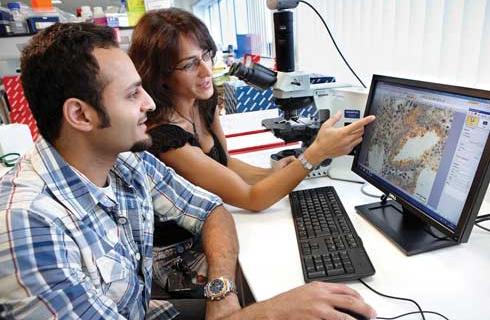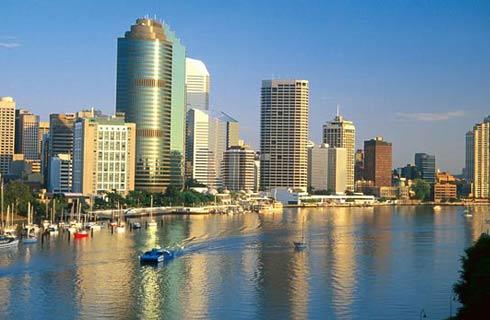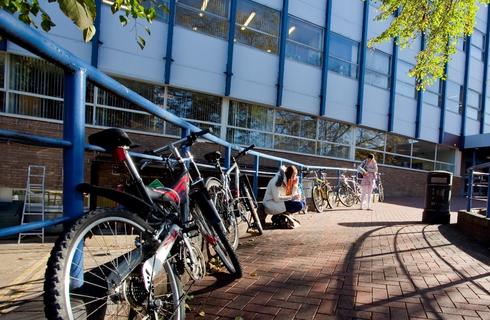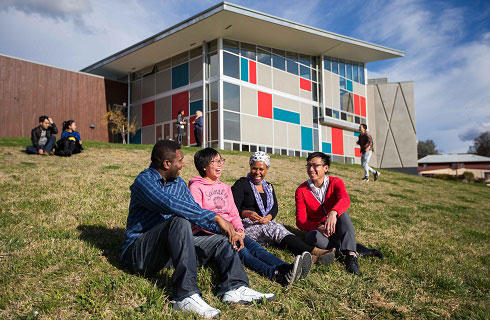Bachelor of Science in Global Environmental Science- Environmental Planning

学历文凭
Bachelor Degree

专业院系
环境科学

开学时间

课程时长

课程学费

国际学生入学条件
To be considered for admission, you must have completed or are in the process of completing secondary school with a cumulative or overall grade point average (GPA) that is comparable to a US grade of B (3.00 on a 4.00 scale) or higher. The Admissions Committee will also be looking at the grades/marks you have received for Mathematics and Science courses.
All official transcripts, examination certifications (e.g., General Certificate of Education) and other documents showing all high school and any completed post-secondary work must be submitted to the Office of Admissions. All official transcripts must be mailed directly by the institution or Ministry of Education to the Office of Admissions. Documents mailed or hand carried by you or anyone else will not be accepted as official or used for admission consideration.
Secondary school transcripts must include a list of courses taken and grades/internal marks received each year, class rank for the last four years of secondary school, and an explanation of the school's grading system. If transcripts with annual internal marks are unavailable directly from the school, you may photocopy your mark sheets or grade reports and have them certified by a school official who verifies that a transcript is otherwise not available.
IELTS (Academic Test) - 7.0
TOEFL (iBT)- 100
TOEFL (PBT)- 600
IDP—雅思考试联合主办方

雅思考试总分
7.0
了解更多
- 雅思总分:7
- 托福网考总分:100
- 托福笔试总分:600
- 其他语言考试:Duolingo - 125
CRICOS代码:
申请截止日期:请 与IDP联系 以获取详细信息。
课程简介
Global environmental problems like human-induced climate change challenge local strategies to manage natural resources, protect sensitive species habitats, and ensure the long-term health of ecosystems. With over fifty percent of the world's population now living in urban areas and consuming most of the earth's resources, the way we plan, design and regulate our cities exacerbates local conditions. At the same time, urban areas are also important locations for solutions. Environmental planners adopt solutions-oriented approaches to address environmental problems, such as supporting local food production, building disaster risk reduction, deploying clean sources of energy, conserving biodiversity and natural habitats, managing urban waste, adapting to sea-level rise and preserving freshwater resources. Planning as a discipline has a long tradition in problem solving across different scales from neighborhoods to entire regions with extensive community involvement.<br>Hawaii is an ideal location to tackle issues of environmental sustainability. The archipelago faces special challenges associated with its island setting, fragile ecosystems, limited space and natural resources. Hawaii and its people are fortunate to have a wide range of renewable energies and a rich history in land use management, rooted in historical and cultural practice. Hawaii is also uniquely positioned within the Asia-Pacific region serving as a bridge between the East and the West to build collaborative networks for innovative environmental solutions. <br>The Environmental Planning track in the Global Environmental Science program will engage undergraduate students to grasp, engage with, and develop solutions to regional environmental problems by focusing their academic studies on environmental planning and policy-making. In this track, students will gain foundational knowledge necessary to understand the planning profession while concurrently learning tools, planning approaches and policies that aim to preserve the environment. They will also learn about collaborative and community-based interventions. Graduates will be uniquely positioned for careers as environmental planners, specialists, and consultants employed by government agencies or private firms required to review planning permits, develop master plans, prepare environmental impact studies, or develop mitigation strategies to minimize development impacts. Students will also be well prepared to continue graduate studies in urban and regional planning.
相关申请

预科

奖学金

实习机会

在校学习

跨境学习

校园授课-线上开始

在线/远程学习
学校排名
世界排名
201
数据源:泰晤士高等教育世界大学排名
本校相关课程
Master of Science in Zoology

学历文凭
Masters Degree
下一个开始日期
课程费用总额
Master of Urban and Regional Planning

学历文凭
Masters Degree
下一个开始日期
课程费用总额
Master of Science in Tropical Plant Pathology

学历文凭
Masters Degree
下一个开始日期
课程费用总额
Master of Science in Tropical Plant and Soil Sciences

学历文凭
Masters Degree
下一个开始日期
课程费用总额
Master of Science in Travel Industry Management

学历文凭
Masters Degree
下一个开始日期
课程费用总额
Master of Fine Arts in Theatre

学历文凭
Masters Degree
下一个开始日期
课程费用总额
其他相关课程
地理学环境研究学士

滑铁卢大学
泰晤士高等教育世界大学排名:

学历文凭
Bachelor Degree with Honours
下一个开始日期
课程费用总额
环境研究学士-地理与环境管理[一般]

滑铁卢大学
泰晤士高等教育世界大学排名:

学历文凭
Bachelor Degree with Honours
下一个开始日期
课程费用总额
环境研究学士-环境与商业[仅限合作社]

滑铁卢大学
泰晤士高等教育世界大学排名:

学历文凭
Bachelor Degree
下一个开始日期
课程费用总额
资源与环境管理硕士

达尔豪斯大学
泰晤士高等教育世界大学排名:

学历文凭
Masters Degree
下一个开始日期
课程费用总额
环境研究硕士

达尔豪斯大学
泰晤士高等教育世界大学排名:

学历文凭
Masters Degree
下一个开始日期
课程费用总额
环境科学理学学士

温尼伯大学
泰晤士高等教育世界大学排名:

学历文凭
Bachelor Degree
下一个开始日期
课程费用总额





